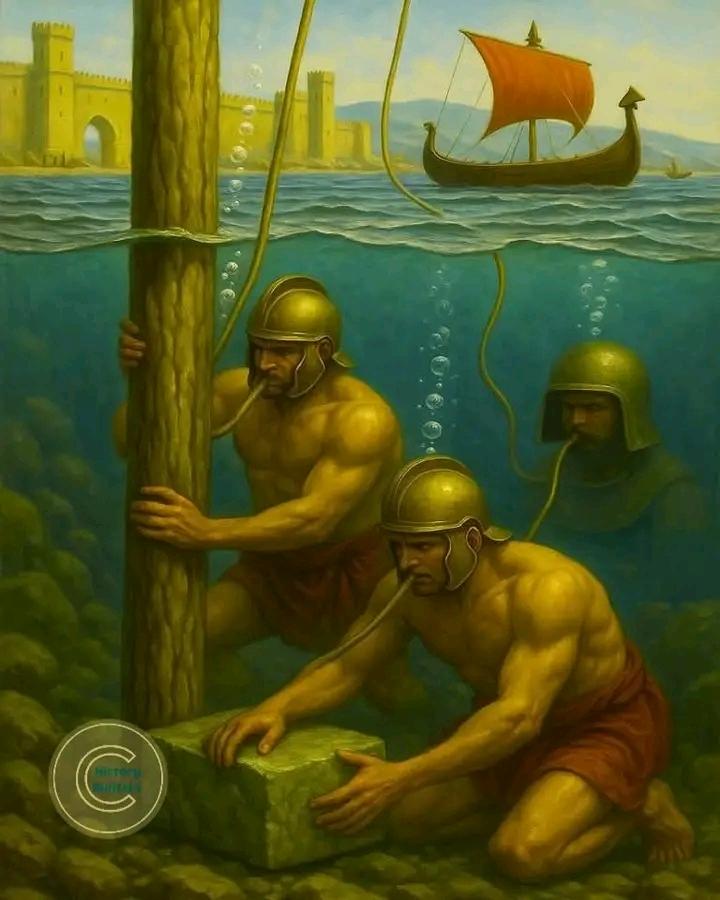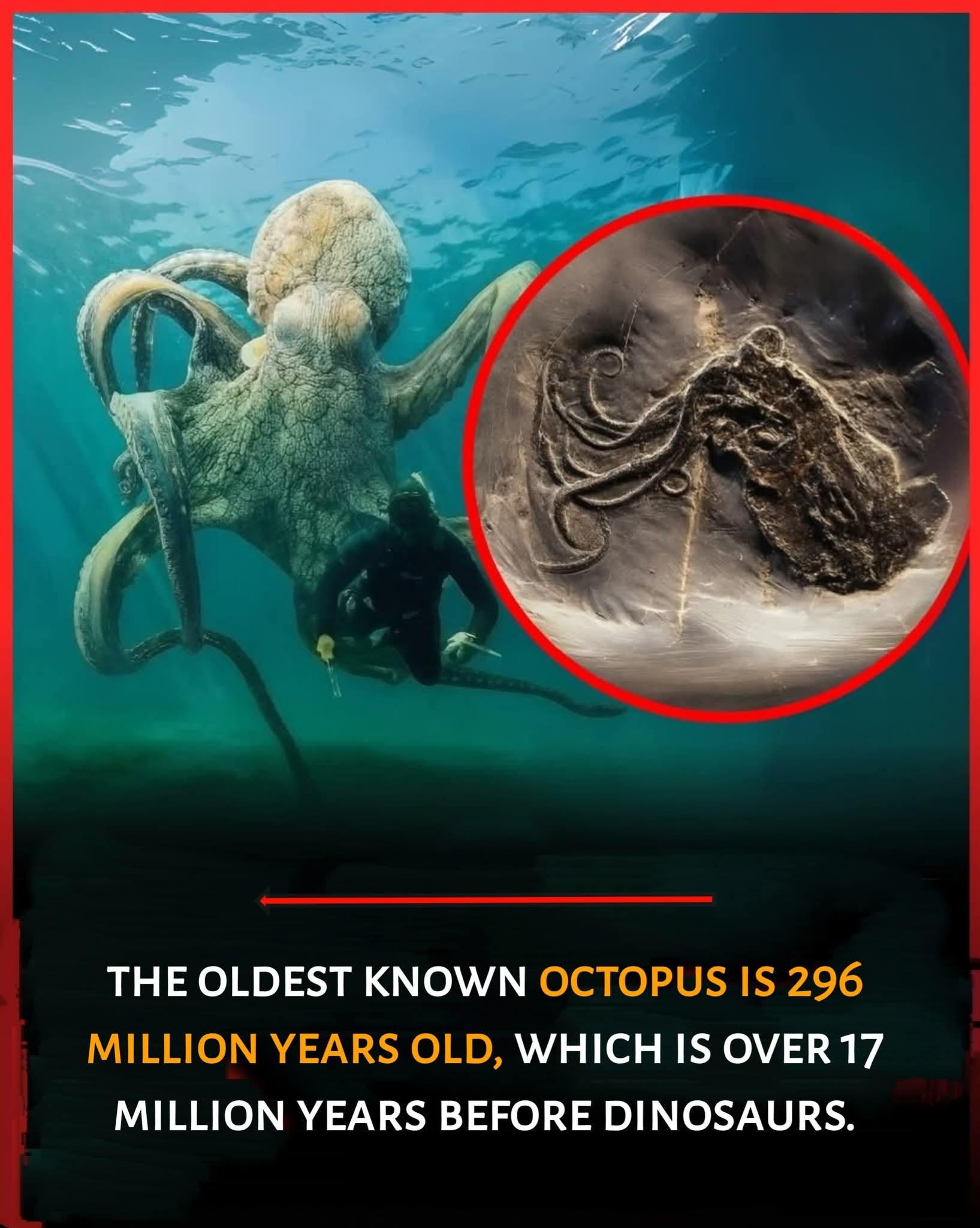২,০০০ বছর আগে রোমানরা ইতিমধ্যেই ডাইভিং ও পানির নিচে প্রকৌশলবিদ্যায় দক্ষতা অর্জন করেছিল।
অক্সিজেন ট্যাংক, আধুনিক স্যুট কিংবা উন্নত প্রযুক্তি ছাড়াই, তারা অসম্ভবকে সম্ভব করেছিল—বন্দর নির্মাণ, জাহাজের ধ্বংসাবশেষ অনুসন্ধান, এমনকি সাগরের তলায় বিশাল স্থাপনা দাঁড় করানো।
• প্রাচীন যন্ত্র দিয়ে পানির নিচে শ্বাস নেওয়া
পানির নিচে দীর্ঘক্ষণ থাকতে, রোমান ডুবুরিরা বাঁশের নল বা ধাতব টিউব ব্যবহার করে পৃষ্ঠ থেকে বাতাস টানত। কিছু ক্ষেত্রে তারা "ডাইভিং বেল" ব্যবহার করত—বাতাস ভর্তি পাত্র মাথার ওপর বসানো হতো, যা আধুনিক ডাইভিং হেলমেটের মতো কাজ করত। এই পদ্ধতিতে তারা প্রায় ৩০ মিটার গভীরে নামতে পারত।
• গভীর থেকে দৈত্য তুলতে পারা
সবচেয়ে বিস্ময়কর সাফল্যের একটি ছিল প্রাচীন কিসারিয়ার ("বর্তমান ইসরায়েলের উপকূলে, ঐতিহাসিক ফিলিস্তিনের অংশে অবস্থিত কিসারিয়া") বন্দর, যা খ্রিস্টপূর্ব ১ম শতকে হেরড দ্য গ্রেট নির্মাণ করেছিলেন। এটি বিশাল এক প্ল্যাটফর্মের ওপর নির্মিত, যা সরাসরি পানির নিচে ঢালা হয়েছিল—এমন একটি কাজ যা আজকের প্রকৌশলীরাও চ্যালেঞ্জ হিসেবে দেখবে।
• তারা উদ্ভাবন করেছিল এমন কংক্রিট, যা পানিতে শক্ত হয়
রোমের সবচেয়ে যুগান্তকারী আবিষ্কার ছিল হাইড্রোলিক কংক্রিট—চুন, আগ্নেয়গিরির ছাই ও কাঁকর মিশ্রণ, যা পানির সংস্পর্শে শক্ত হয়ে যায়। এই উপাদান হাজার বছর পরেও স্থিতিশীল ও টেকসই থাকে, এবং অনেক রোমান স্থাপনা আজও দাঁড়িয়ে আছে।
• রোম শুধু সাম্রাজ্য গড়েনি—তারা গড়েছিল অসম্ভবকেও
রোমানদের পানির নিচে নির্মাণ প্রযুক্তি এতটাই উন্নত ছিল যে আধুনিক বিজ্ঞান প্রায় ২,০০০ বছর পরে এসে তা বুঝতে ও নকল করতে সক্ষম হয়েছে। তাদের উত্তরাধিকার শুধু স্থাপত্যেই নয়, সেই প্রকৌশল গোপনীয়তাতেও বেঁচে আছে, যা আমরা এখনও আবিষ্কার করে চলেছি।
History Hunters
অক্সিজেন ট্যাংক, আধুনিক স্যুট কিংবা উন্নত প্রযুক্তি ছাড়াই, তারা অসম্ভবকে সম্ভব করেছিল—বন্দর নির্মাণ, জাহাজের ধ্বংসাবশেষ অনুসন্ধান, এমনকি সাগরের তলায় বিশাল স্থাপনা দাঁড় করানো।
• প্রাচীন যন্ত্র দিয়ে পানির নিচে শ্বাস নেওয়া
পানির নিচে দীর্ঘক্ষণ থাকতে, রোমান ডুবুরিরা বাঁশের নল বা ধাতব টিউব ব্যবহার করে পৃষ্ঠ থেকে বাতাস টানত। কিছু ক্ষেত্রে তারা "ডাইভিং বেল" ব্যবহার করত—বাতাস ভর্তি পাত্র মাথার ওপর বসানো হতো, যা আধুনিক ডাইভিং হেলমেটের মতো কাজ করত। এই পদ্ধতিতে তারা প্রায় ৩০ মিটার গভীরে নামতে পারত।
• গভীর থেকে দৈত্য তুলতে পারা
সবচেয়ে বিস্ময়কর সাফল্যের একটি ছিল প্রাচীন কিসারিয়ার ("বর্তমান ইসরায়েলের উপকূলে, ঐতিহাসিক ফিলিস্তিনের অংশে অবস্থিত কিসারিয়া") বন্দর, যা খ্রিস্টপূর্ব ১ম শতকে হেরড দ্য গ্রেট নির্মাণ করেছিলেন। এটি বিশাল এক প্ল্যাটফর্মের ওপর নির্মিত, যা সরাসরি পানির নিচে ঢালা হয়েছিল—এমন একটি কাজ যা আজকের প্রকৌশলীরাও চ্যালেঞ্জ হিসেবে দেখবে।
• তারা উদ্ভাবন করেছিল এমন কংক্রিট, যা পানিতে শক্ত হয়
রোমের সবচেয়ে যুগান্তকারী আবিষ্কার ছিল হাইড্রোলিক কংক্রিট—চুন, আগ্নেয়গিরির ছাই ও কাঁকর মিশ্রণ, যা পানির সংস্পর্শে শক্ত হয়ে যায়। এই উপাদান হাজার বছর পরেও স্থিতিশীল ও টেকসই থাকে, এবং অনেক রোমান স্থাপনা আজও দাঁড়িয়ে আছে।
• রোম শুধু সাম্রাজ্য গড়েনি—তারা গড়েছিল অসম্ভবকেও
রোমানদের পানির নিচে নির্মাণ প্রযুক্তি এতটাই উন্নত ছিল যে আধুনিক বিজ্ঞান প্রায় ২,০০০ বছর পরে এসে তা বুঝতে ও নকল করতে সক্ষম হয়েছে। তাদের উত্তরাধিকার শুধু স্থাপত্যেই নয়, সেই প্রকৌশল গোপনীয়তাতেও বেঁচে আছে, যা আমরা এখনও আবিষ্কার করে চলেছি।
History Hunters
২,০০০ বছর আগে রোমানরা ইতিমধ্যেই ডাইভিং ও পানির নিচে প্রকৌশলবিদ্যায় দক্ষতা অর্জন করেছিল।
অক্সিজেন ট্যাংক, আধুনিক স্যুট কিংবা উন্নত প্রযুক্তি ছাড়াই, তারা অসম্ভবকে সম্ভব করেছিল—বন্দর নির্মাণ, জাহাজের ধ্বংসাবশেষ অনুসন্ধান, এমনকি সাগরের তলায় বিশাল স্থাপনা দাঁড় করানো।
• প্রাচীন যন্ত্র দিয়ে পানির নিচে শ্বাস নেওয়া
পানির নিচে দীর্ঘক্ষণ থাকতে, রোমান ডুবুরিরা বাঁশের নল বা ধাতব টিউব ব্যবহার করে পৃষ্ঠ থেকে বাতাস টানত। কিছু ক্ষেত্রে তারা "ডাইভিং বেল" ব্যবহার করত—বাতাস ভর্তি পাত্র মাথার ওপর বসানো হতো, যা আধুনিক ডাইভিং হেলমেটের মতো কাজ করত। এই পদ্ধতিতে তারা প্রায় ৩০ মিটার গভীরে নামতে পারত।
• গভীর থেকে দৈত্য তুলতে পারা
সবচেয়ে বিস্ময়কর সাফল্যের একটি ছিল প্রাচীন কিসারিয়ার ("বর্তমান ইসরায়েলের উপকূলে, ঐতিহাসিক ফিলিস্তিনের অংশে অবস্থিত কিসারিয়া") বন্দর, যা খ্রিস্টপূর্ব ১ম শতকে হেরড দ্য গ্রেট নির্মাণ করেছিলেন। এটি বিশাল এক প্ল্যাটফর্মের ওপর নির্মিত, যা সরাসরি পানির নিচে ঢালা হয়েছিল—এমন একটি কাজ যা আজকের প্রকৌশলীরাও চ্যালেঞ্জ হিসেবে দেখবে।
• তারা উদ্ভাবন করেছিল এমন কংক্রিট, যা পানিতে শক্ত হয়
রোমের সবচেয়ে যুগান্তকারী আবিষ্কার ছিল হাইড্রোলিক কংক্রিট—চুন, আগ্নেয়গিরির ছাই ও কাঁকর মিশ্রণ, যা পানির সংস্পর্শে শক্ত হয়ে যায়। এই উপাদান হাজার বছর পরেও স্থিতিশীল ও টেকসই থাকে, এবং অনেক রোমান স্থাপনা আজও দাঁড়িয়ে আছে।
• রোম শুধু সাম্রাজ্য গড়েনি—তারা গড়েছিল অসম্ভবকেও
রোমানদের পানির নিচে নির্মাণ প্রযুক্তি এতটাই উন্নত ছিল যে আধুনিক বিজ্ঞান প্রায় ২,০০০ বছর পরে এসে তা বুঝতে ও নকল করতে সক্ষম হয়েছে। তাদের উত্তরাধিকার শুধু স্থাপত্যেই নয়, সেই প্রকৌশল গোপনীয়তাতেও বেঁচে আছে, যা আমরা এখনও আবিষ্কার করে চলেছি।
History Hunters
0 التعليقات
0 المشاركات
1كيلو بايت مشاهدة
















